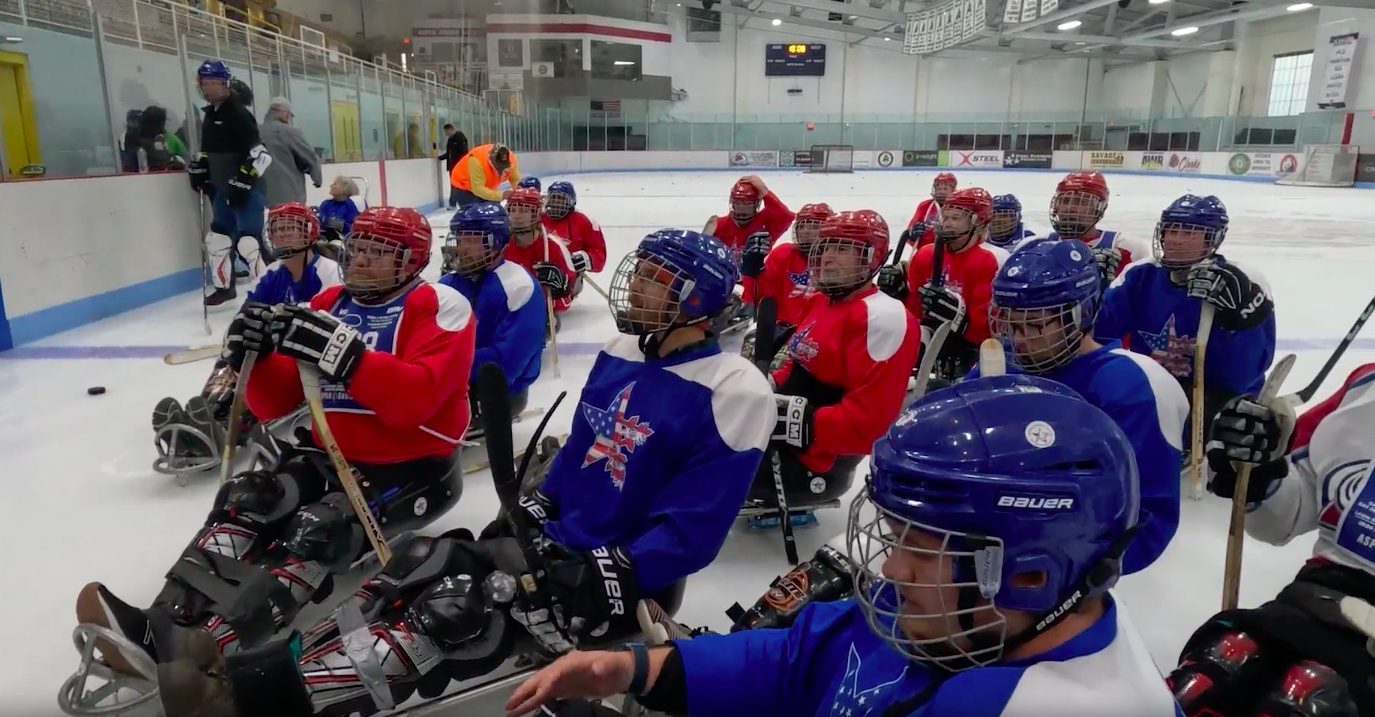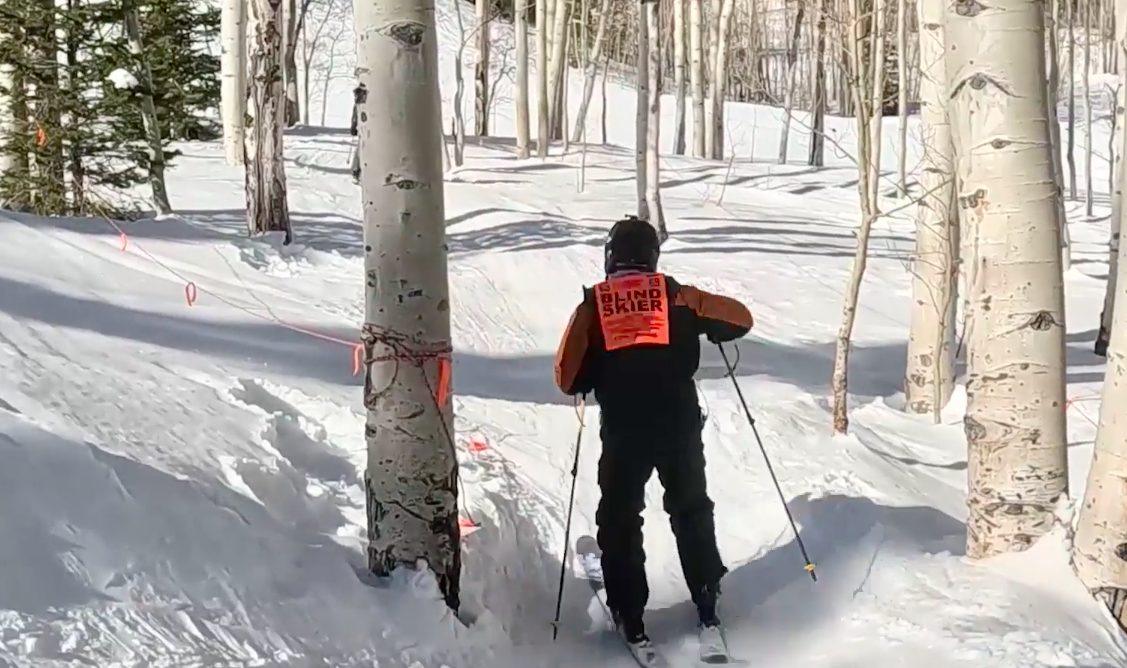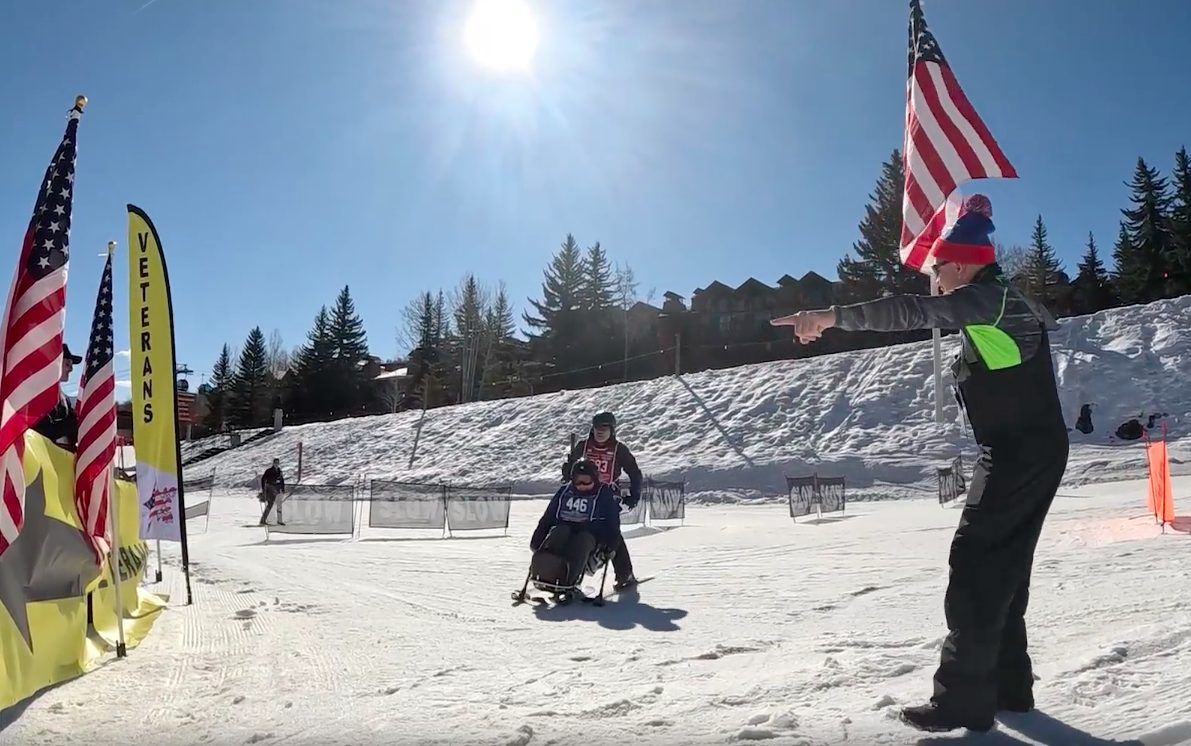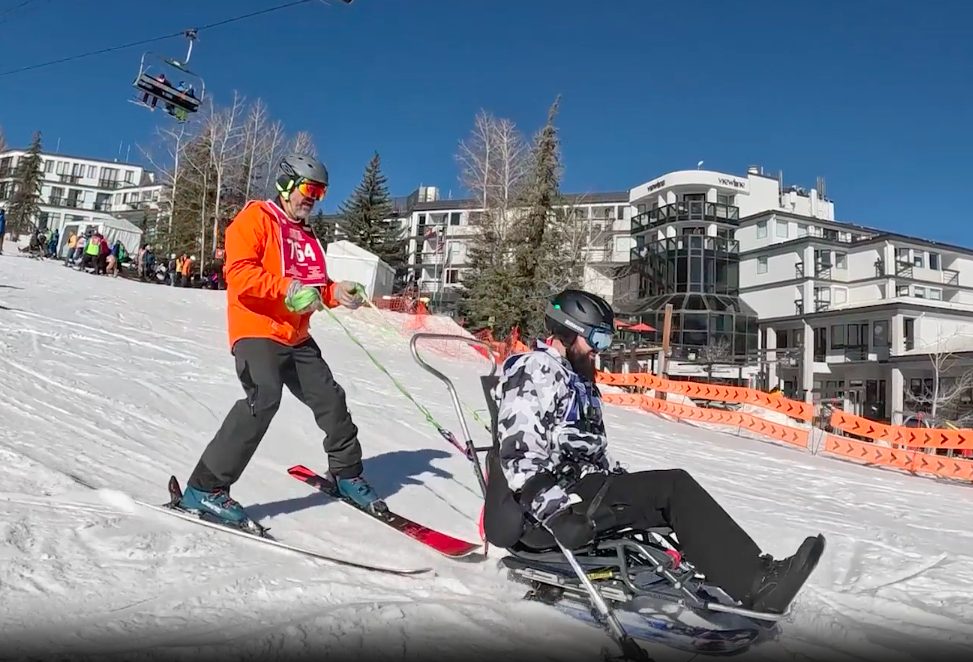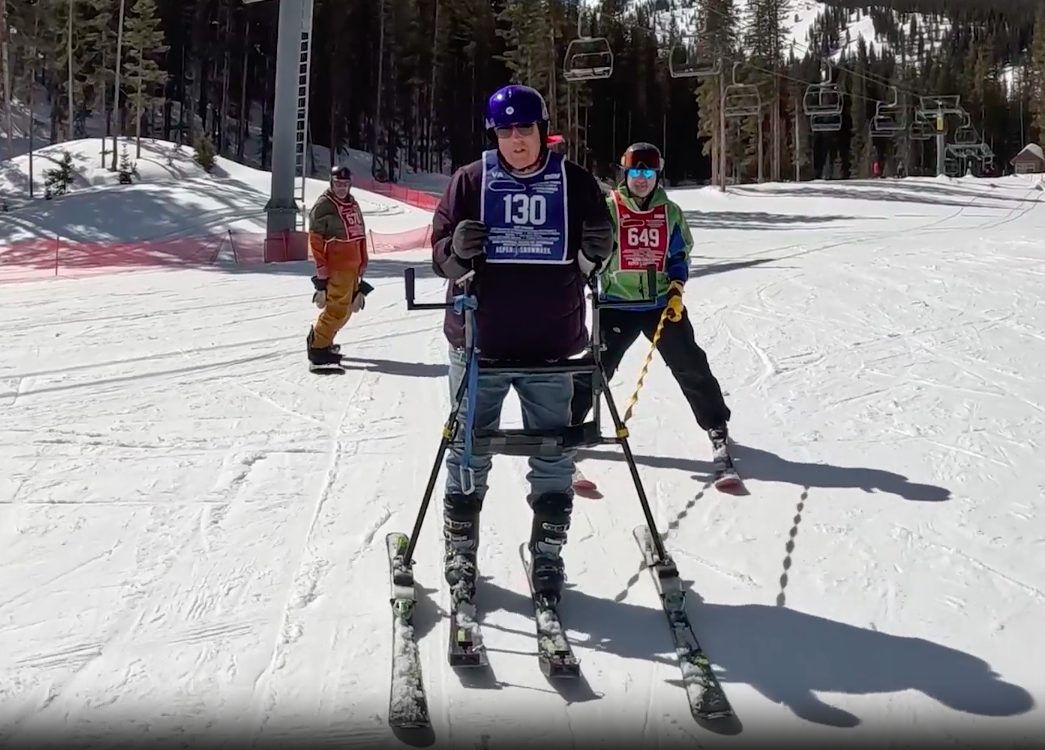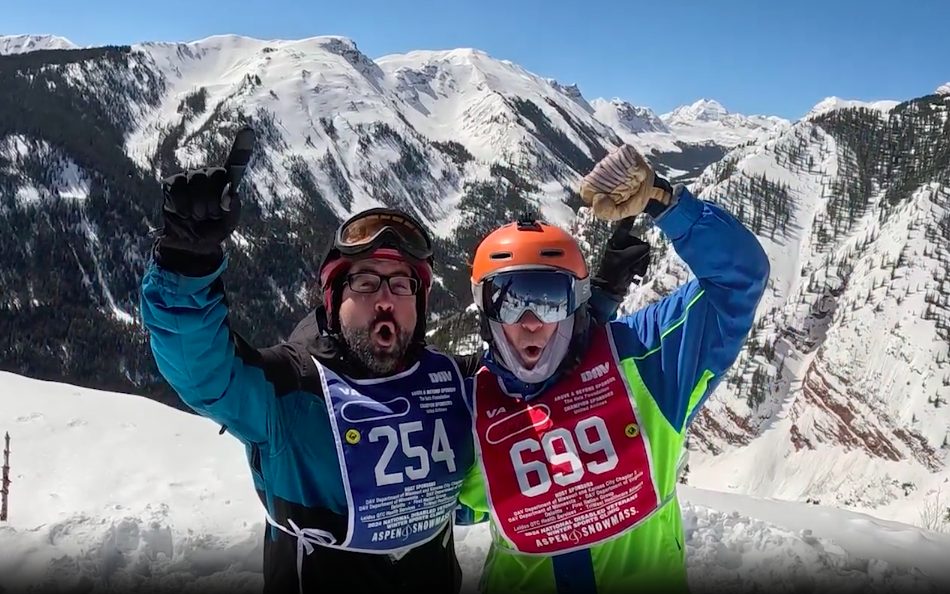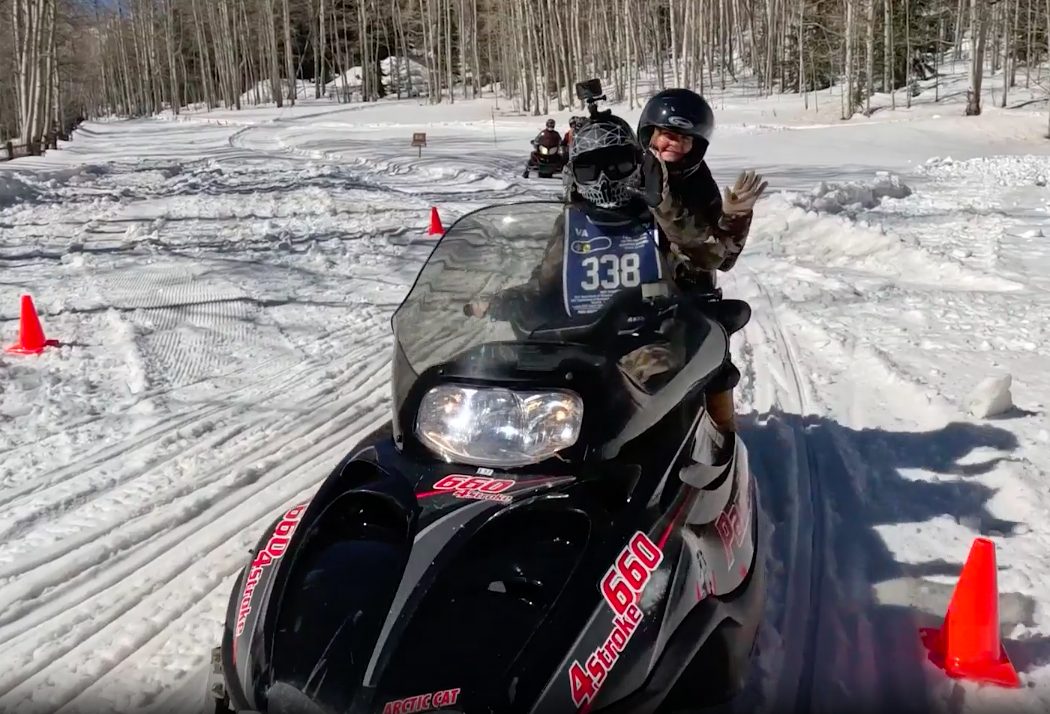
The mission of the National Disabled Veterans Winter Sports Clinic is to involve disabled Veterans with spinal cord injuries, amputations, neurological disorders, visual impairments, and other profound injuries and medical concerns in challenging therapeutic outdoor experiences and education. These experiences provide the catalyst that improves overall physical well-being, mental health, self-esteem, community re-entry, and readjustment. For almost four decades, the National Disabled Veterans Winter Sports Clinic has helped many of our nation’s most profoundly disabled veterans overcome obstacles and challenge their perceived limitations. The five-day event is held in Snowmass, Colorado. It is sponsored by the Department of Veterans Affairs and Disabled American Veterans, with financial assistance from corporate sponsors and individual donors.
From March 31 to April 5 the Disabled American Veterans will host the 39th National Disabled Veterans Winter Sports Clinic. Commonly referred to as Miracles on a Mountainside, the winter clinic includes Nordic and downhill skiing, sled hockey, rock wall climbing, scuba diving, and various other sports and educational workshops. It is the largest rehabilitative event of its kind in the world and will host nearly 400 participants this year. Veterans with traumatic brain injuries, spinal cord injuries, visual impairments, amputations, and other severe disabilities are challenged to overcome perceived limitations through adaptive sports programs and education. There are also many other events veterans can compete in such as the Mono-Ski, Bi-Ski/Dual Ski, Three-Track Ski, Four-Track Ski, Four-track skiing, Sighted-Guided Nordic skiing (standup), and Sledge Hockey.
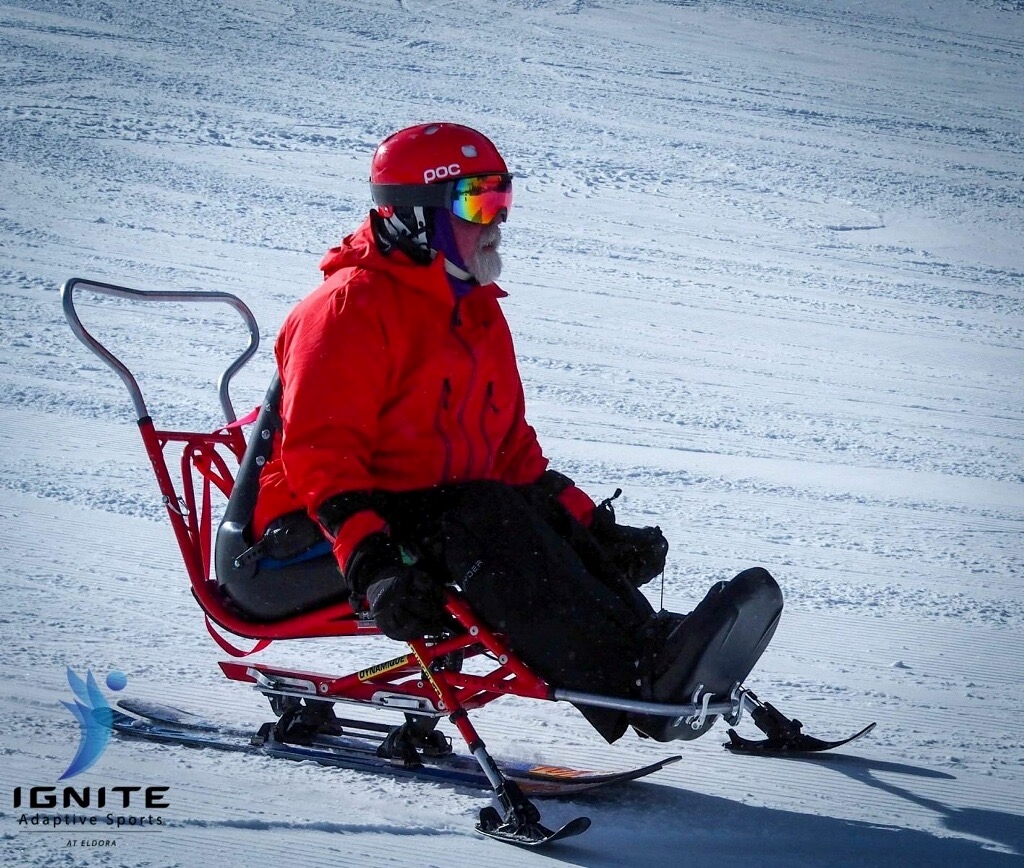
The National Disabled Veterans Winter Sports Clinic is the world leader in rehabilitation. The five-day clinic, which began in 1987 with 90 participants, has grown to assist nearly 400 profoundly disabled Veterans. Today, the clinic still supports about 400 participants and approximately 120 of them will be their first time at the Winter Sports Clinic. There are also 600 volunteers and 200 sponsors who are involved in making the clinic successful each year. “The average age of participants is about 55 years old, with the youngest being 22 and the oldest veteran being 93 years old,” Jason Strickland, Communications Director for the National Disabled Veterans Winter Sports Clinic said in an interview with SnowBrains.
One of those participants is 73-year-old Veteran Dan Strizek, a U.S. Air Force veteran and Winter Sports Clinic participant from Lakewood, Colorado. Strizek is one of many disabled veterans receiving help and support yearly from the Winter Sports Clinic. Having the opportunity to participate in activities just like everyone else is something that all disabled veterans want to do. Strizek started at the Breckenridge Outdoor Education Center and then did a few years at Winter Park, Colorado. He trains once a week at Ignite Adaptive Sports, which provides children and adults with disabilities access to Colorado’s amazing outdoor winter sports. The clinic has also introduced dozens of Veterans to future glory as Paralympic athletes.
Ignite Adaptive Sports is just 21 miles outside Boulder, Colorado, and about four hours away from Aspen Snowmass. Strizek trains once a week for the Winter Sports Clinic there and rides a bi-ski called a Bayou. He admits that he is in a wheelchair a lot more than he would want these days. According to Strizek, he was a pretty good runner back in the day. Most veterans are used to being in top-notch shape, and having to rely on a wheelchair can be mentally challenging. Participating in these adaptive programs gives veterans like Strizek a new chance at life. “It gives me my freedom back and fulfills my need to zoom a little bit when I get going down the hill,” Strizek said.
The Winter Sports Clinic is special for so many veterans and participants who rely on it for motivation, support, and inspiration. All participants have some sort of disability and they all come together to meet at the mountain each spring at the Winter Sports Clinic. “Well, I’m rather addicted to it. I really look forward to skiing every year because it’s just so invigorating and life-changing,” Strizek said.
Creating the environment for veterans to have this opportunity requires specialized training and rehabilitation every year. The Winter Sports Clinic provides world-class instructors to help veterans achieve their maximum potential based on their unique capabilities. These instructors are highly trained to work with people with disabilities of all types. They come every year to assist at the Winter Sports Clinic at Aspen Snowmass from all over the United States and Canada. The instructors volunteer their time, and the clinic pays for their food and lodging while they’re volunteering for the week. “Many of their ski resorts are still open where they could be working, but they take the time because of the importance of this event to do this, and it’s just fantastic,” Strickland said.
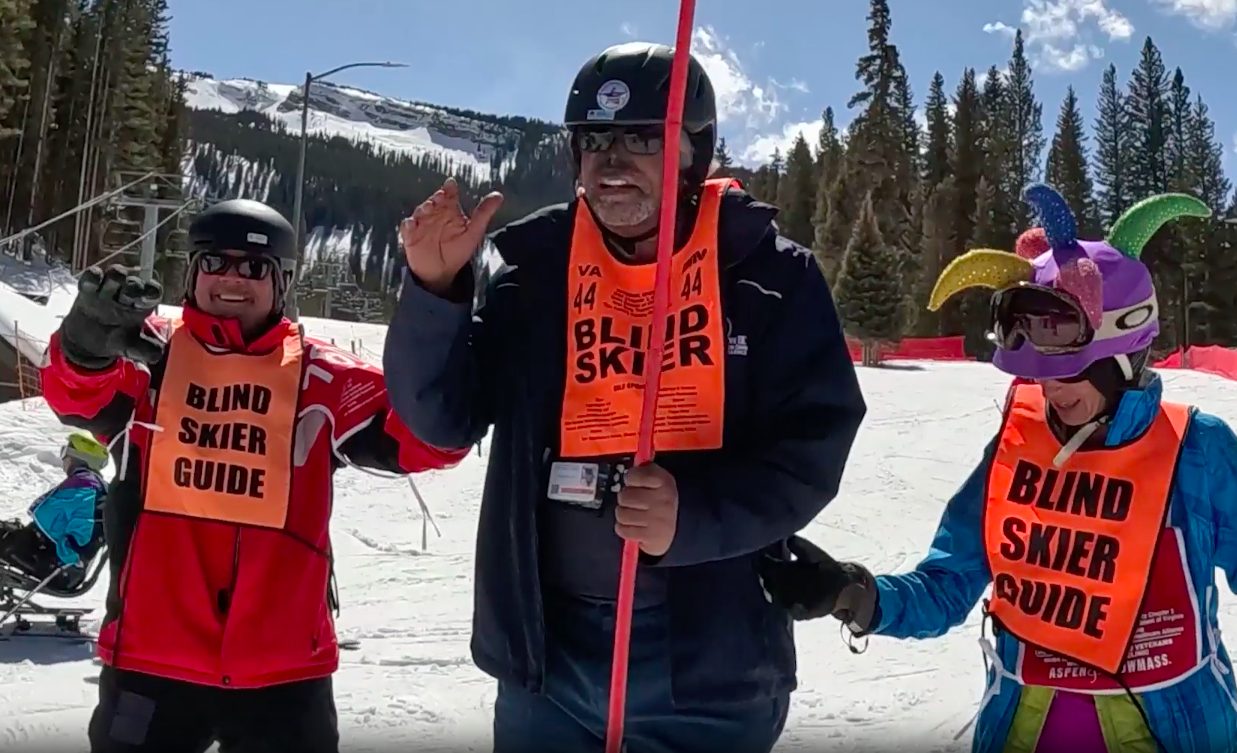
One of those instructors is Jessica Conyers, a Winter Sports Clinic coach from VA Eastern Colorado Health Care System in Denver. “A lot of times [Veterans] are thrill seekers and adrenaline junkies, and so learning to ski or snowboard can be a really good, positive way to spend their free time, ” Conyers said. The key is to set up the participants for success right from the start. The first step is setting the veterans up with the Ignite Adaptive Sports programs that run from January through March. They take a group of 15 veterans up to Ignite once a week where the learning process begins.
A crucial part of this process is determining what activity the veteran wants to participate in and then identifying the best equipment for them. According to Conyers, every participant needs different adaptive equipment, and it is the job of the coaches and instructors to determine which piece of equipment is best for each participant. “I would say that’s very individual, just depending on somebody’s needs, their disabilities, their fitness level, and the piece of equipment that they decide to pursue,” Conyers said. After the activity is chosen and the veteran is given the correct piece of equipment, they train and practice all season long at Ignite. The Winter Sports Clinic is the culminating event at the end of the season, where the veterans go to Snowmass and get to engage in that sport with veterans from all over the country.
Getting some veterans to try a winter sports activity at first can be difficult. Some may have never tried a winter sports activity before they were injured and are reluctant to try. They may also have that idea in their heads that now that they are disabled, that they can’t do things anymore. It’s coaches like Conyers who let them know that they still can do things. “We tell them, you know, actually, you can, because we can get just about anybody out on the slope,” Conyers said.
The clinic is not just for disabled veterans, but for veterans who are recovering from homelessness, PTSD, and substance abuse. Conyers takes veterans from Valor Point, which is a residential rehabilitation facility in Lakewood, Colorado, for veterans who are in recovery. She usually takes around five veterans from Valor Point who just want to learn to ski and introduces them to the program.”It’s really awesome for them to just try new high octane sports, because a lot of times when you’re trying to recover from substance abuse or mental health challenges, just finding new positive leisure interests and a new positive community to hang out with is really important,” Conyers said. “And a lot of times they’re thrill seekers and adrenaline junkies, and so learning to ski or snowboard can be a really good, positive way to spend their free time.”
The National Disabled Veterans Winter Sports Clinic provides a much-needed service to the men and women who served in our military. Their ability to accomplish daily tasks that were once simple has now become things that require thought, desire, and strength. “I think I would just add that not only is this event important to get veterans involved in adaptive sports, but the camaraderie, socialization, and mental health benefits they get from participating in this are really important,” Conyers said. Programs like the Winter Sports Clinic give disabled veterans the chance to live their lives to the fullest. The mantra at the Winter Sports Clinic is miracles on a mountainside, and that’s what the veterans at the National Disabled Veterans Winter Sports Clinic experience. The need for this type of activity is important for the full continuum of care for our veterans. “It is just so life-changing, I don’t know how to even explain it except it’s invigorating, and I guess that’s the best way to put it,” Strizek said.
For more information visit the National Disabled Veterans Winter Sports Clinic website.
